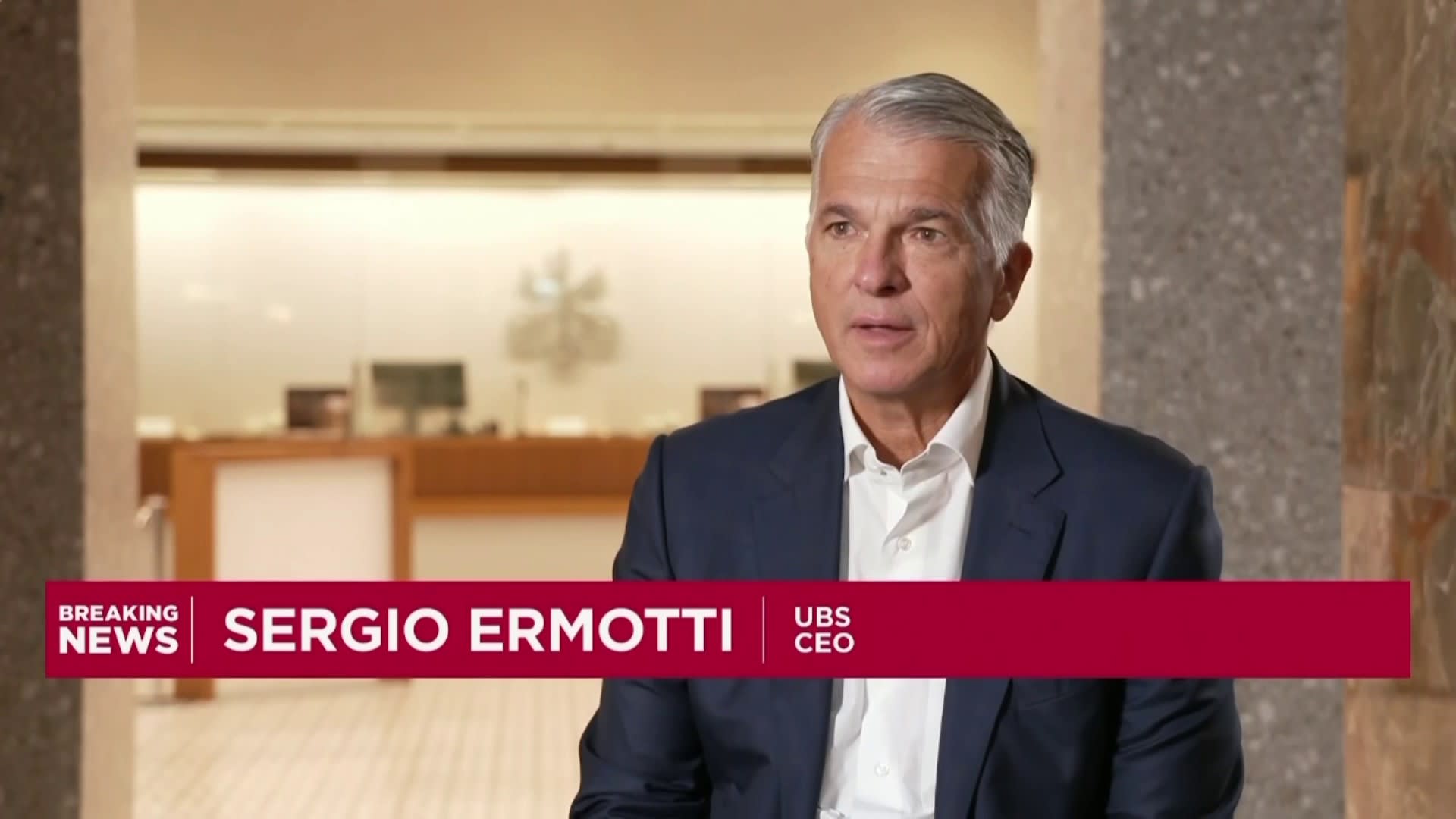Entertainment
UBS CEO Warns Trump Tariffs Could Strain Consumption and Inflation

Ralph Hamers, the CEO of UBS, has raised concerns regarding the potential impact of tariffs imposed by former President Donald Trump on consumer behavior and inflation in the United States. Speaking during a recent conference, Hamers highlighted that the tariffs, which could affect goods worth approximately $300 billion, may lead to increased prices and altered purchasing patterns.
The tariffs, originally enacted in 2018 on Chinese imports, have seen a resurgence in discussions as the current economic climate remains uncertain. Hamers emphasized that higher prices resulting from these tariffs could dampen consumer spending, which is crucial for the overall economic health of the country. He noted that inflationary pressures might be exacerbated, particularly as consumers grapple with the rising costs of essential goods.
Tariffs and Economic Implications
The implications of these tariffs are significant, especially as the United States seeks to stabilize its economy post-pandemic. According to Hamers, the tariffs could serve as a double-edged sword, potentially leading to a decrease in consumer confidence. He stated, “If consumers perceive that their purchasing power is being eroded, they may choose to spend less, which ultimately impacts economic growth.”
Furthermore, the ongoing trade tensions between the United States and China, alongside the European Union, underscore the complexities of global trade relations. Hamers pointed out that these tariffs could trigger retaliatory measures, further escalating the situation. “It’s essential for policymakers to consider the broader consequences of such trade barriers,” he added.
In this context, UBS is closely monitoring developments, particularly as the potential for renewed negotiations looms. The financial institution aims to provide insights that can help navigate the forthcoming challenges in the global market.
Future Outlook and Consumer Impact
Looking ahead, Hamers urged a more measured approach to trade policies, advocating for greater collaboration between nations. He believes that fostering positive international relationships can lead to a more stable economic environment. “The goal should be to create conditions that support sustainable growth rather than impose barriers that hinder it,” he remarked.
As the situation evolves, consumers may feel the immediate effects of these tariffs in their daily lives. Increased prices on imported goods could lead to a broader impact on household budgets, affecting everything from grocery bills to electronics.
Analysts are observing these developments closely, noting that the decisions made in the coming months will have lasting ramifications on both the economy and consumer behavior. The dialogue surrounding tariffs continues to be a pivotal issue, with UBS and other financial institutions preparing for various scenarios.
In conclusion, Ralph Hamers of UBS has underscored the potential risks associated with the reinstatement of tariffs, particularly concerning consumer spending and inflation. As the global economy navigates these challenges, the focus remains on developing trade strategies that promote economic stability rather than exacerbate existing tensions.
-

 Lifestyle3 months ago
Lifestyle3 months agoLibraries Challenge Rising E-Book Costs Amid Growing Demand
-

 Sports3 months ago
Sports3 months agoTyreek Hill Responds to Tua Tagovailoa’s Comments on Team Dynamics
-

 Sports3 months ago
Sports3 months agoLiverpool Secures Agreement to Sign Young Striker Will Wright
-

 Lifestyle3 months ago
Lifestyle3 months agoSave Your Split Tomatoes: Expert Tips for Gardeners
-

 Lifestyle3 months ago
Lifestyle3 months agoPrincess Beatrice’s Daughter Athena Joins Siblings at London Parade
-

 World3 months ago
World3 months agoWinter Storms Lash New South Wales with Snow, Flood Risks
-

 Science3 months ago
Science3 months agoTrump Administration Moves to Repeal Key Climate Regulation
-

 Science2 months ago
Science2 months agoSan Francisco Hosts Unique Contest to Identify “Performative Males”
-

 Business3 months ago
Business3 months agoSoFi Technologies Shares Slip 2% Following Insider Stock Sale
-

 Science3 months ago
Science3 months agoNew Tool Reveals Link Between Horse Coat Condition and Parasites
-

 Sports3 months ago
Sports3 months agoElon Musk Sculpture Travels From Utah to Yosemite National Park
-

 Science3 months ago
Science3 months agoNew Study Confirms Humans Transported Stonehenge Bluestones









